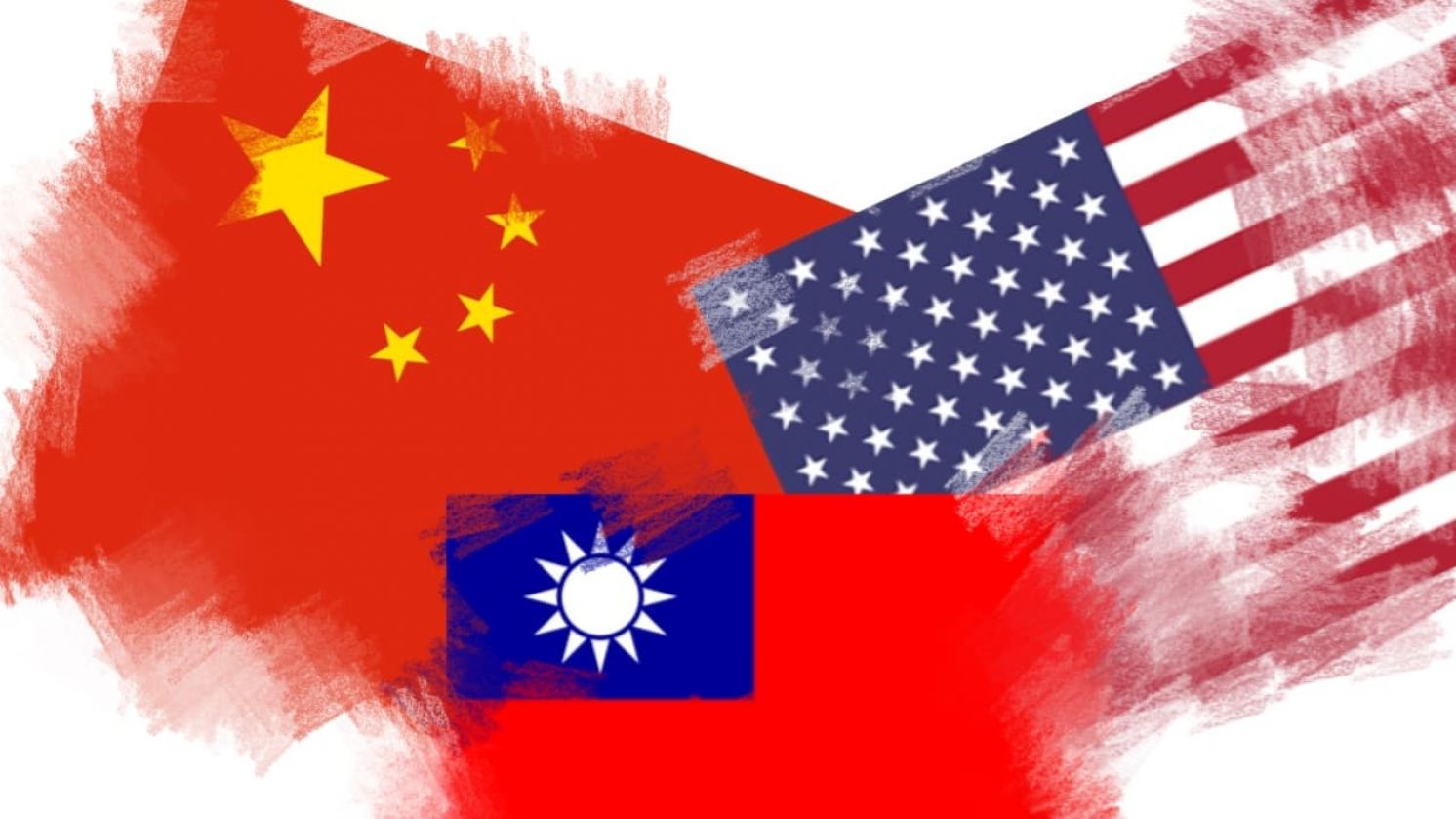
Amid U.S.-China Confrontation, Should Taiwan Pick Sides?
By Chao Chien-min
United Daily News, July 25, 2020
To save his increasingly dire election situation, President Donald Trump of the United States is resorting to an anti-China strategy. Secretary of State Mike Pompeo has declared that China’s claims of the South China Sea are unlawful. A week later, he declared the closure of the Chinese Consulate General in Houston because of engaging in espionage activities, and Western democracies must not treat China as a normal country. China countered by closing the U.S. Consulate General in Chengdu. The two-power rivalry has heated up.
In the past three months, besides passing the Hong Kong Autonomy Act, the United States has prohibited officials enforcing the Hong Kong national security law from visiting the United States. It has also added thirty-three institutions on the "Entity List" that are prohibited from traveling to and from China and named four Chinese media outlets "Foreign Missions.” It passed the Uyghur Human Rights Policy Act, blacklisted four Xinjiang senior officials. It approved of $620 million Patriot III missiles recertification package to Taiwan. American aircrafts and warships frequently transit the Taiwan Strait. The National Defense Authorization Act of 2021, passed by the Senate, includes provisions that support Taiwan to take part in the Rim of the Pacific Exercise. There is a report that the White House is even considering a travel ban on 92 million members of the Chinese Communist Party!
China fiercely responded. Besides closing the Chengdu consulate-general, it expelled five American media and expanded military exercises in the South China Sea. U.S.-China relations deteriorated to a new low. Professor Ezra Vogel of Harvard University said that Beijing worried that Taiwan will cross the red line and war may break out in the Taiwan Strait. Bloomberg News said that the South China Sea has become the most likely flashpoint between the United States and China, and there are signs of alarm across East Asia.
Amid U.S.-China confrontation, whither Taiwan? Before answering this question, we must first understand the U.S. Indo-Pacific strategy. The goal of Trump's anti-China strategy is to win the election. Its policies towards China’s neighboring countries are in nature exploitive. From Xinjiang’s human rights to the Hong Kong Autonomy Act, to the denial of China’s South China Sea sovereignty, and to increasing arms sales to Taiwan, Trump has picked most sensitive sovereign issues and made provocative declarations to China. But policies that have substantial benefits for Asian countries, such as increasing defense commitments to allies, enhancing economic and trade links between the United States and the Asia-Pacific region, and increasing military and economic assistance to allies and so on, have nowhere to be found. In fact, Trump not only failed to secure the trust of Asian allies, but on the contrary, oftentimes hurled hard words at allies and eventually withdrew from the East Asia Free Trade Agreement.
The same applies to Trump’s Taiwan policies. Although Congress has passed many declarative bills, negotiations on the important Trade and Investment Framework Agreement (TIFA) between Taiwan and the United States have yet to be held since President Tsai took office. Taiwan’s outstanding performance in epidemic prevention could not win the United States to co-sponsor an appeal for Taiwan's participation in the World Health Assembly before the United States proposed withdrawal from the World Health Organization. Congress passed the "Taiwan Travel Act," allowing high-level exchanges of visits, but in the past five years, no ministerial officials have visited. For Trump, Taiwan is just a tool for "anti-China, protecting Trump"!
How should Taiwan respond?
Prime Minister Lee Hsien Loong of Singapore recently published an article in Foreign Affairs, noting that Asia has prospered because of Pax Americana, but good relations with China are critical which provides the best advice to the Pacific rim countries. The biggest problem of the Tsai government is that it regards the U.S.-China rivalry as a single-choice issue. Even the Voice of America pointed out that Taiwan has clearly sided with Washington. Nevertheless, Communist China has the ambition to reunify Taiwan, and the United States is the greatest bulwark for Taiwan’s security. No Taiwanese regardless of pan-blue or pan-green would ever deny this fundamental consensus. Yet decrying the other party who advocate cross-strait peaceful exchanges as siding with China has left Taiwan with no depth and plunge cross-strait peace into a precarious situation.
Using a "single-choice question" to handle cross-strait relations has not only caused internal divisions and rendered peace hopeless but also resulted in irreconcilable contradictions of policies. In the first six months of this year, Taiwan’s exports to the world have increased by 0.5 percent annually, exports to the New Southbound countries reduced by 4.8 percent, but exports to mainland China rose 9.8 percent, making the exports to mainland China a historic new high of 42.3 percent and investment in mainland China rose by 52 percent in the first half of the year. These figures were a slap in the face of President Tsai who constantly emphasizes reducing dependence on mainland exports.
In the face of a complex changing world, what Taiwan should do is making the most favorable calculations based on reality, maintain value alliance with the United States, and maintain the status quo across the Taiwan Strait. Moreover, Taiwan must reduce rather than escalate risks across the Taiwan Strait, enhance rather than reduce international space, and increase rather than self-limit competitiveness. This is also the choice for other countries in the face of rivalry between the superpowers.
Facing the vicious confrontation between China and the United States, if Taiwan approaches it as a single-choice question, without calculation, then the risks of getting engulfed in danger are imminent!